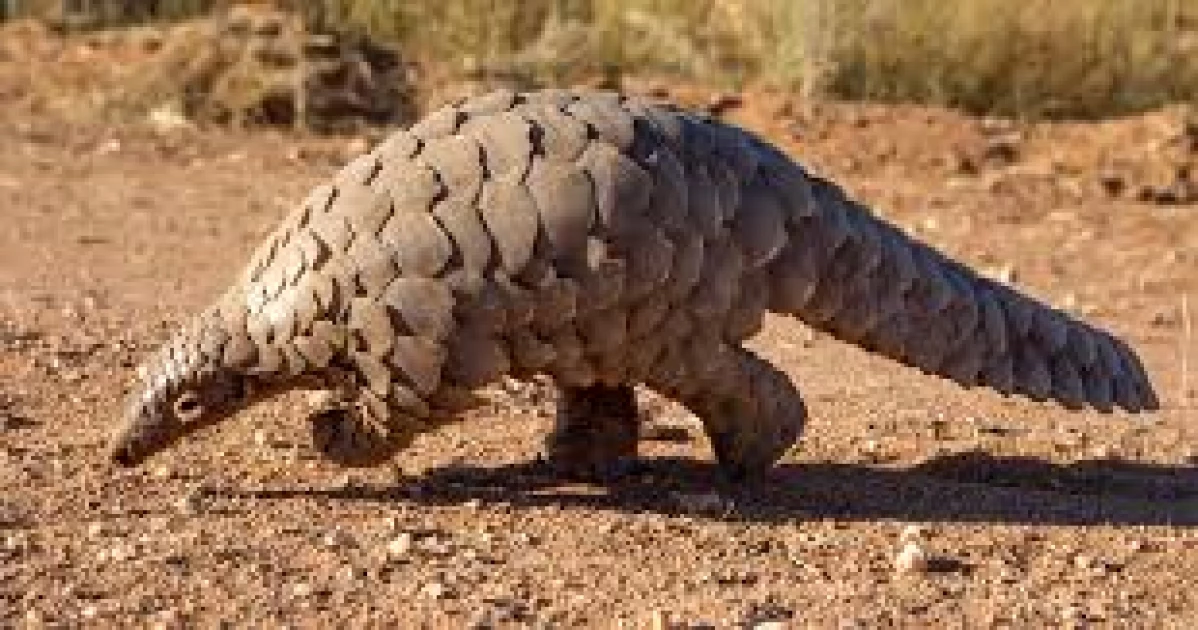Concerns mount over open advertisement of endangered wildlife on TikTok’s marketplace

Investigations by World Animal Protection (WAP) show that sellers in Lomé, the capital of Togo, have been openly showcasing carcasses of endangered animals, including the white-bellied pangolin — a species listed as endangered by the International Union for Conservation of Nature (IUCN) and protected under the Convention on International Trade in Endangered Species (CITES).

Audio By Vocalize
Investigations by World Animal Protection (WAP) show that sellers in Lomé, the capital of Togo, have been openly showcasing carcasses of endangered animals, including the white-bellied pangolin — a species listed as endangered by the International Union for Conservation of Nature (IUCN) and protected under the Convention on International Trade in Endangered Species (CITES).
The findings highlight how social media platforms are increasingly being exploited to bypass international conservation safeguards.
Dr. Angie Elwin, Head of Research at WAP, warned that the lack of oversight on digital platforms is creating a dangerous new marketplace for illegal wildlife products.
“We are seeing social media becoming the new marketplace for endangered wildlife. It is easily accessible and massively unregulated, placing a direct threat to species’ survival,” she said, calling out TikTok for failing to enforce its own community guidelines that prohibit such trade.
Between November 2022 and April 2024, researchers reviewed more than 80 videos across two TikTok accounts, documenting over 3,500 smoked animal carcasses from 27 protected species.
These included more than 130 white-bellied pangolins. Despite an international ban on commercial pangolin trade, the species remains the most trafficked mammal in the world, driven by demand for its meat and scales, which are widely used in traditional medicine across Africa and Asia.
The content reviewed by WAP collectively amassed nearly 1.8 million views, 53,000 likes, and more than 6,000 shares. One of the most widely viewed videos — featuring smoked pangolins — was seen over 216,000 times.
Traders often promoted bushmeat by emphasizing its “taste” and “health benefits,” effectively normalizing the illegal sale of protected wildlife.
Experts warn that beyond threatening biodiversity, the trade also poses serious public health risks. Pangolins, jackals, mongooses, and rodents — all featured in the videos — are known carriers of zoonotic diseases. Animal welfare concerns are also pressing, with reports indicating that pangolins are often boiled alive or burned during slaughter to facilitate the removal of their scales.
Delagnon Assou, lead author of the report and a researcher at the University of Lomé, noted that the role of social media has transformed the trade.
“In West and Central Africa, wild meat has long been valued for its taste, cultural importance, and role in local livelihoods. But the rise of social media sales is transforming the scale and nature of this trade. What was once a largely local practice is now reaching audiences far beyond national borders,” he said.
The WAP report urges TikTok and other social media platforms to strengthen enforcement of their wildlife trafficking policies, implement automated content detection tools, and launch in-app campaigns to raise awareness about endangered species. National governments have been called upon to support alternative livelihoods, harmonize wildlife laws, and strengthen enforcement of CITES regulations. Conservation groups are also being urged to invest in public education campaigns to reduce demand for bushmeat and other wildlife products.
“Online platforms are driving new patterns of demand, especially among urban consumers, and posing fresh challenges for enforcement and regulation,” said Dr. Elwin. “If social media platforms don’t act, extinction could unfold in real-time on their apps. This is a wake-up call. We must ensure platforms like TikTok do not become safe havens for wildlife traders.”


Leave a Comment